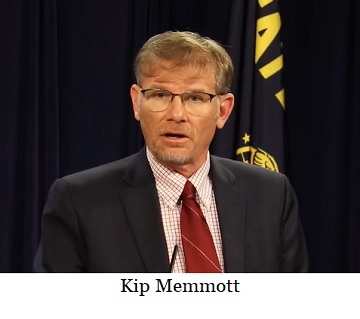PEBB’s reserves have grown more than anticipated over the years
Secretary of State Bev Clarno and Audit Division Director Kip Memmott released an
audit of cost containment practices for state worker’s health care. What should be concerning to taxpayers is six paragraphs on page 14 entitled, “PEBB’s reserve needs better planning and legislative sweeps have reduced the balance.†The PEBB’s reserve balance was significantly reduced by a $135 million legislative sweep, triggering a $14.5 million federal penalty. The audit criticizes the board for not having a strategic plan for how to adjust and use reserve funds when the reserve accumulates more than needed to address claims and other program costs.
PEBB began moving toward self-funded plans in 2006 to better control premium cost increases and help save money, and has been mostly self-funded since 2010. As self-funded, PEBB pays for employees’ health benefits with its own funds (collected from premiums) and assumes direct risk for paying benefit claims, with any moneys remaining saved in reserve. The PEBB board, based on consultant recommendations, sets the premium rates, which includes a calculation for the reserve.
PEBB’s reserves have grown more than anticipated over the years. Rather than using some of the reserve to lower premiums, or other allowable services to reduce benefit plan costs, the reserve continued to grow for multiple years. PEBB’s reserve was reduced significantly by the Legislature when it was used to help balance the state’s budget. The Legislature swept $120 million from PEBB’s nearly $435 million reserve in Spring 2017 and is set to take another $15 million in 2021. As a result, PEBB was fined $12 million for the first sweep from the federal government. The Office of Management and Budget’s A-87 Circular requires that allocating the cost of plans to agencies be done on a consistent basis and there should be an equitable distribution of costs based on benefits received. The legislative sweep violated those required cost principles. Likewise, the program is expected to be fined $2.5 million from the second sweep in 2022.
Taking a sweep of $147.5 million to shore-up the state budget at a 10% cost lacks fiduciary responsibility. By PEBB’s own Administrative Rules, this is not an option for use. According to OAR 101-001-0015, PEBB may use its reserves for the four following purposes:
- reimburse insurers for contracts payments (e.g., if benefit expenses exceed premium revenues)
- minimize premium increases and the impact on premium contributions due to benefit plan changes
- pay for expenses critical to PEBB program administration (e.g., data processing)
- pay for services, programs, or studies that will reduce benefit plan costs
In accordance with state statute, the board has opted to use some reserves to help pay for program costs such as program incentives (e.g., the Health Engagement Model) and taxes (state tax on commercial health insurance plans). Reserve funds have also been used to align tiers, such as employee and family, within each medical plan so the program would avoid a tax penalty. Recently, in June 2020, the board used some reserve funds to buy-down premiums to help with agencies’ budgets in addressing forecasted budget concerns and economic uncertainties of the COVID-19 pandemic.
A D V E R T I S E M E N T
A D V E R T I S E M E N T
However, as the audit points out, the board does not have a formal policy or strategic plan for determining the appropriate reserve amount to be maintained or for the steps to take when the reserve reaches higher or lower than targeted levels. Having a policy or plan could help ensure reserve funds are more effectively used toward containing plan costs.
--Donna Bleiler| Post Date: 2020-11-25 15:36:06 | Last Update: 2020-11-25 15:44:32 |






